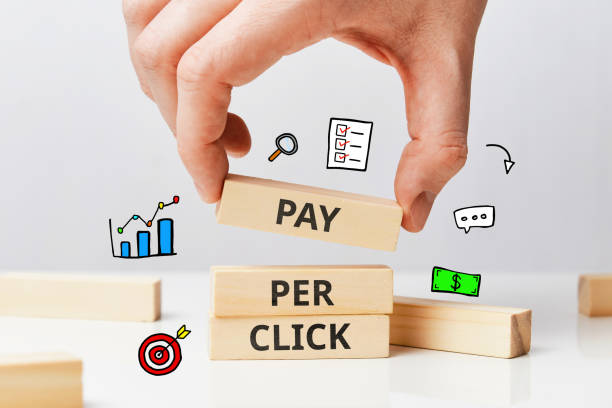Paid ads complement organic online marketing efforts, such as search engine optimization (SEO). They can generate leads, raise brand awareness, and convert fast.
But one key to success is hiring the right pay-per-click (PPC) agency. How do you streamline all options?
This post covers seven tips for picking the best online advertising firm.
7 Ways to Hire the Best PPC Agency for Your Brand
PPC advertising isn’t cheap. It can cost you thousands a year, so you should ensure every penny’s worth it.
Get smart with your choice for a PPC firm with these ideas:
1. Work with an Expert
Can you work with a newbie? Of course, but it might not be the best investment. A PPC expert will have more experience and, therefore, better advice.
You are most probably dealing with an expert if:
- The agency can present certifications. According to Digital Authority Partners (DAP), your choice should possess certifications in Google Ads and Bing Ads.
- It has been offering the service for years. Look for those that have been working on PPC for at least three years.
- They belong to relevant trade groups. Although it is unnecessary, being a member of industry associations means the company is trustworthy, credible, and legitimate. After all, these organizations vet those who like to join.
- The agency knows your niche inside out. If it understands your business, then it can create better ad campaigns.
- The team can customize the solutions. You’re not looking for a one-size-fits-all plan. The agency should base its deliverables on your specific goals and needs.
2. Find a PPC Firm That Can Also Do Other Digital Marketing Tactics
It benefits your business more if the PPC agency can also perform other digital marketing techniques. These include:
- SEO
- Email marketing
- Web design and development
- Social media marketing
- Content marketing
An all-around agency gives you a holistic approach to your marketing efforts. Their integrative strategies work together to achieve common business goals.
For example, a digital marketing team specializing in SEO can place your brand first in the search results. Because you’re doing well here, it might cascade to your PPC campaigns. Ads could cost less and have better conversion rates.
3. Choose a PPC Partner Who Keeps Track of Results Religiously
Analytics should be an ongoing activity for any PPC agency. It:
- Helps the team spot patterns or trends. Why are the best-performing ads no longer working? What new strategies should we try?
- Allows for strategic decisions. What goals should the team aim for in the next quarter or year? Are the current campaigns sustainable in the long run?
- Generates reports. How are the campaigns doing so far? Do they need to be tweaked or changed entirely?
- Measures success against competitors. How does your brand compare to others in terms of digital marketing? What strategies are they using that you’re not?
- Helps see the bigger picture. How do all marketing efforts work together? Are there any gaps that you should address? Why are your ads doing well in terms of click-through rates (CTRs) but are not converting?
How often should PPC firms perform analytics? As often as possible. But at the very least, they should do it monthly.
Reports should also be easy to understand. Data dumps are overwhelming, so avoid those. Go for clarity and insights that you can use to improve your campaigns.
4. Work with an Agency That Gives You a Realistic Timeline
A PPC agency that tells you they can increase your sales by 400% in just one month is not being truthful. PPC success takes time and planning, especially if platforms are having issues.
Don’t be afraid to ask your potential partners how long they think it will take to see results. The answer will depend on several factors, such as:
- Budget. Usually, you can’t expect to see fast results if your funds are extremely limited. This is especially true if you’re bidding for highly competitive keywords.
- Niche or industry. If you’re in a very crowded market, getting noticed will take more time and effort.
- Platform. Google has the widest reach, but competition is fierce. Social media websites, such as LinkedIn, tend to be smaller but have a more engaged specific audience.
5. Determine if the PPC Agency Is Good at Communicating
You and your PPC firm should be on the same page from start to finish. This can only happen if both parties have open communication.
The agency should:
- Be responsive to your inquiries through email, phone, or online chat. If they’re unavailable when you need them, that’s a red flag.
- Explain things in layman’s terms. You’re not looking for jargon-filled reports or presentations. The team should also break down complex concepts so you can understand them easily and tell you the tools they’re using and why they’re necessary.
- Inform you if it is outsourcing the work. It’s not uncommon for agencies to outsource, but they should be upfront about it, letting you know which parts of the project will be in-house and which ones are outsourced.
- Involve you in the decision-making process. After all, it’s your campaign. The agency should consider your goals and preferences before making any changes or decisions.
6. Compare Prices but Don’t Settle for the Cheapest Option
When it comes to PPC campaigns, you usually get what you pay for. If an agency is too cheap, then that might be because they’re cutting corners somewhere. It could also mean they’re inexperienced or poorly invested in your success.
On the other hand, just because a firm is expensive doesn’t guarantee that they’re the best fit for you.
Find balance by:
- Asking for quotes or estimates from at least three different agencies
- Including your budget when requesting proposals
- Allocating enough funds for online advertising
- Looking for PPC teams willing to negotiate
- Choosing those with services easy to scale
7. Make Sure the Agency Knows the Latest PPC Trends
Online marketing is always changing. What worked yesterday might not work today. It’s crucial to partner with an agency that knows the latest trends and changes in the industry.
Some things you can ask them about include:
- Algorithm updates. Google, in particular, is known for regularly rolling out algorithm changes. These can directly affect your PPC campaigns, so your team should be aware of them and know how to adjust accordingly.
- New features or tools. Platforms like LinkedIn, Facebook, and Google Ads constantly introduce new features. A good firm is the first to adopt and use them in its clients’ campaigns.
- Industry news. Staying on top of current events helps the agency understand the target audience more and anticipate consumer behavior changes, which can then factor into your PPC strategy.
Summing Up
An effective PPC partner can make all the difference in your online marketing success. Following the tips above can help narrow your choices and find the best team to manage your campaigns.








